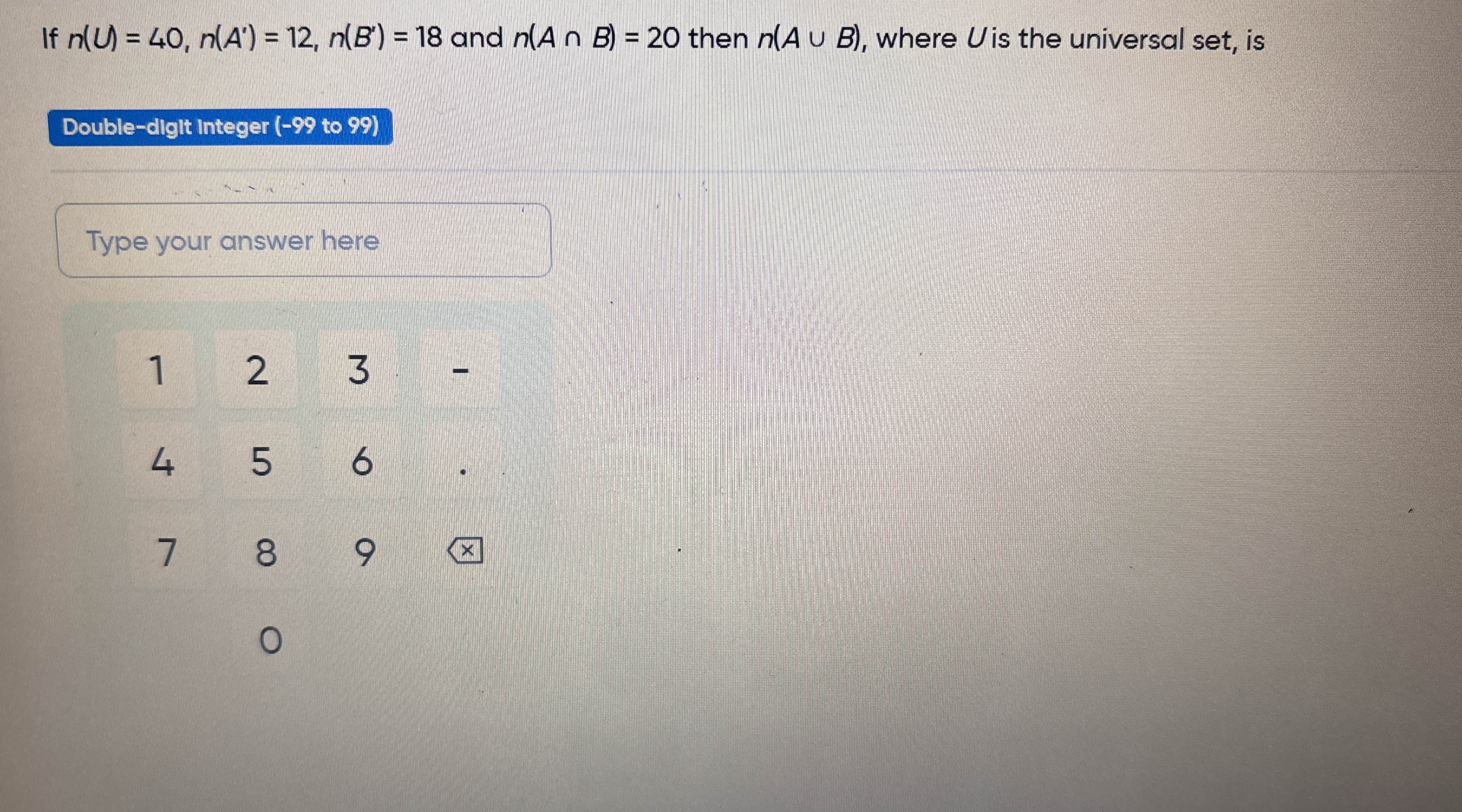If n(U) = 40, n(A) = 12, n(B) = 18 and n(A ∩ B) = 20 then n(A ∪ B), where U is the universal set, is?

Understand the Problem
The question is asking to calculate the number of elements in the union of two sets, A and B, using the provided information about the universal set and the individual sets. We will utilize the formula for union of two sets: n(A ∪ B) = n(A) + n(B) - n(A ∩ B).
Answer
$n(A \cup B) = 10$
Answer for screen readers
The number of elements in the union of sets A and B is $n(A \cup B) = 10$.
Steps to Solve
- Identify the Given Information We have the following values:
- $n(U) = 40$ (the number of elements in the universal set)
- $n(A) = 12$ (the number of elements in set A)
- $n(B) = 18$ (the number of elements in set B)
- $n(A \cap B) = 20$ (the number of elements in the intersection of sets A and B)
-
Use the Union Formula We need to find $n(A \cup B)$ using the formula: $$ n(A \cup B) = n(A) + n(B) - n(A \cap B) $$
-
Substitute the Values Now substitute the known values into the formula: $$ n(A \cup B) = 12 + 18 - 20 $$
-
Calculate the Union Now perform the arithmetic: $$ n(A \cup B) = 30 - 20 = 10 $$
The number of elements in the union of sets A and B is $n(A \cup B) = 10$.
More Information
The union of two sets includes all the elements that are in either set. In this case, despite the individual counts, the intersection suggests that some elements are counted twice when simply adding the sets together.
Tips
- Forgetting to subtract the intersection $n(A \cap B)$, which can lead to overcounting elements belonging to both sets.
- Misinterpreting the values provided; ensure to identify the correct quantity for each set and the universal set.
AI-generated content may contain errors. Please verify critical information